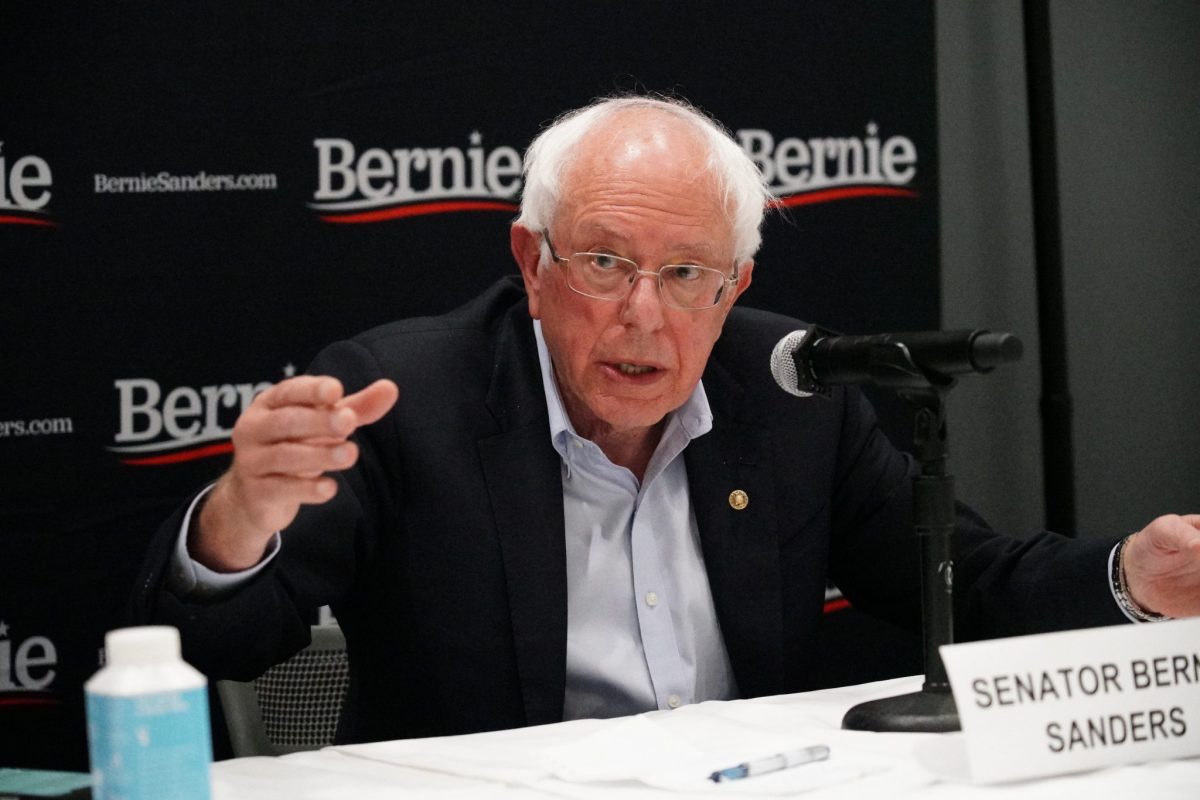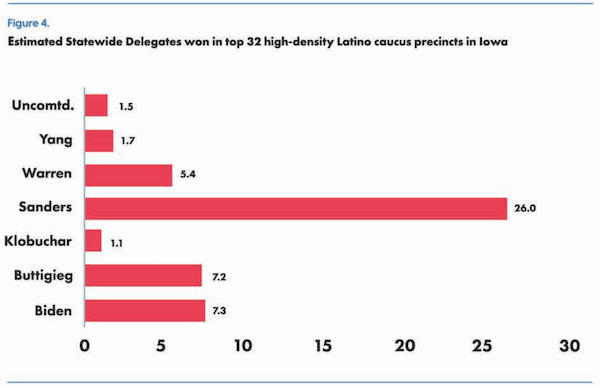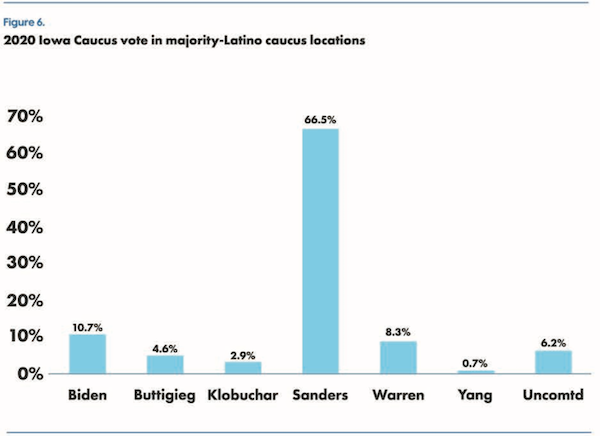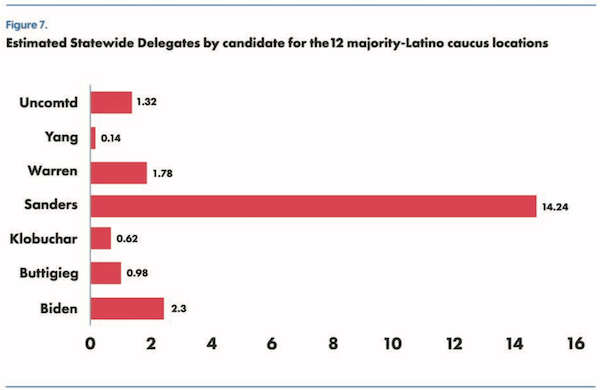

Sanders answers a question from Latino Rebels during a 2019 press conference in Los Angeles, California. (Photo by Francisco Lozano/Latino Rebels)
MANCHESTER, New Hampshire — A statistical analysis of how Latinos voted in the 2020 Iowa Caucus released Friday by UCLA’s Latino Policy & Politics Initiative (LPPI) said that Bernie Sanders overwhelmingly won the vote across the state’s high-density Latino caucus locations.
The following four graphics highlight what the LPPI shared, using voting data from Monday’s caucus, which had a controversial week due to concerns about voter irregularities and reporting issues.
According to the LPPI’s analysis, Sanders won close to 52% of the vote in the state’s top 32 high-density Latino caucus locations.


The 52% resulted in an estimated 26 statewide delegates for Sanders. The current caucus results have Pete Buttigieg with 564 state delegate equivalents (SDEs) and Sanders with 562 SDEs. That translates to 13 statewide delegates for Buttigieg and 12 for Sanders.


When analyzed across majority-Latino caucus locations, the LPPI said that Sanders got close to 67% of the vote.


In 12 majority-Latino caucus locations, Sanders picked up around 14 SDEs.


When asked about the LPPI analysis after Friday night’s Democratic Debate at St. Anselm College, Sanders senior adviser Jeff Weaver said that the Iowa numbers confirmed that the campaign has make an active outreach to Latino voters across the country.
“Very early on in the process, we reached out to Latino voters both in Iowa and in Nevada,” Weaver told Latino Rebels. “We’ve been reaching out as well to Latino voters in California and other states. During the last campaign, we saw a tremendous explosion of support for Senator Sanders among Latino voters all across this country. I think that his own immigrant story connects with Latino voters. I think in many ways Senator Sanders talks about the America that people who came to this country thought they were coming to, and it’s an aspirational community that I think, they really like Senator Sanders’ message.”
“Winning Latino voters will be a very important part of his primary strategy,” Weaver added, “but let’s be clear, Latino voters are the largest racial minority now in the United States of America. They are typically under-represented in the general election pool of voters, and we think one of Senator Sanders’ strength in the general election will be able to bring out larger numbers of Latino voters.”
In a Thursday interview with Ed O’Keefe of CBS News, Sanders campaign senior adviser Chuck Rocha shared details about the campaign’s efforts to get Latinos to vote in Iowa.
WATCH: How did @BernieSanders eke out a win in the #IowaCaucus? He explained today and we spoke with his senior adviser @ChuckRocha about the campaign’s micro-targeting of Latinos. https://t.co/C9oSC53PlX
— Ed O'Keefe (@edokeefe) February 6, 2020
The LPPI study also noted that Iowa has seen a 375% increase in eligible Latino voters and a 346% increase in registered Latino voters from 2004 to 2020.
The full LPPI report is below:
The LPPI study did not include voter age breakdowns, but a 2019 Iowa Data Center study said that the median age of the state’s 2018 Latino population of 194,432 is 24 years old. The median age for the entire state of Iowa is 38.2 years old. Iowa saw a 135.8% increase in the Latino population from 2000 to 2018.
The median age of Iowa’s Latino population in 2018 was 24. The median age for the state of Iowa is 38.2.https://t.co/921kC5dYBa https://t.co/tq9MqrIhSh
— Jonathan Robinson ? (@jon_m_rob) February 8, 2020
After the New Hampshire Primary on Tuesday, the Democratic race moves on to the Nevada Caucus on February 22. Nevada has around 865,000 Latinos in the state, with an estimated 415,000 who are eligible to vote. The last estimate of registered Latino voters in that state is around 212,000 registered voters.
***
Julio Ricardo Varela is founder and publisher of Latino Rebels, part of Futuro Media. He tweets from @julito77.



[…] candidates. Much has been written about Sanders’ Latino success in Nevada, and it aligns to how the campaign’s micro-targeting of Latinos in Iowa and New Hampshire were not just early anomalies. In fact, it’s safe to say that Sanders is […]